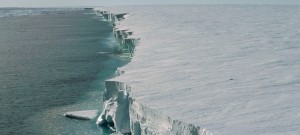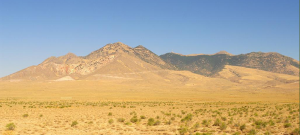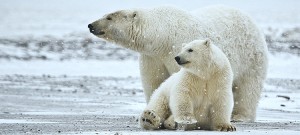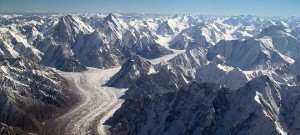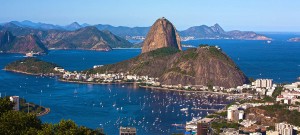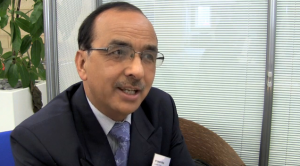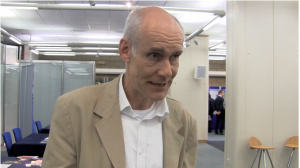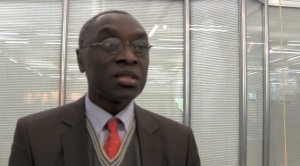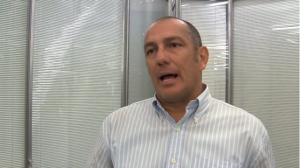Research
Marine reserves in Australia help sustain fisheries
New research examining marine reserves on the Great Barrier Reef use DNA evidence to discover how far they go in helping to sustain fisheries.
Coastal seagrass could store more CO2 than forests
New research in Nature Geoscience, find that coastal seagrass has the potential to be vital carbon sinks and therefore part of the solution to climate change.
Mercury levels in the Arctic Ocean could be sensitive to climate change
New research finds that changes in the river flow and permafrost thaw in the Arctic could be adding to the Mercury found within the Arctic Ocean in the summer months.
Weddell Sea region in West Antarctic could be on brink of change
Two new studies show the Weddell Sea sector of the West Antarctic ice sheet – previously regarded as stable – could be a region of great concern in the future.
Greenland’s glaciers contributing less to sea level rise than thought
Glaciers have “sped up” and contribution to sea level rise still significant but data shows we’re not on track for worst case scenario.
Biodiversity loss impacts ecosystems as much as climate change
New research warns biodiversity protection could be as important as preventing climate change in protecting ecosystems.
Plants flowering faster because of climate change
New research published on Nature warns that plants flowering faster from climate change could have devastating implication for ecosystems.
Wind farms could affect local weather
New research examining wind farms in Texas found that turbines could affect local weather, causing a rise in night-time temperatures.
Warm oceans are driving ice loss in Antarctica, says study
A new study by NASA used laser data to track the thinning of Antarctic ice shelves, finding warm oceans could be a dominant factor in ice loss in the region – bringing researchers closer to predicting sea level rises.
Understanding desertification in Turkey
Duygu Kutluay writes for RTCC about how one project in Turkey is helping researchers to understand how to combat desertification on a number of levels in the country’s drylands.
“Significant Challenges” for life in the Arctic Ocean, says report
Unique all-season report finds risk to biodiversity in the Arctic Ocean and points towards “significant challenges” faced by the region’s nature. Meanwhile another study finds some species could still thrive in the Arctic.
Polar bears need longer to adapt to climate change, say researchers
New research has found the polar bear to be much older than originally thought, showing it adapted much less rapidly to harsh conditions of the Arctic. Researchers say this questions its ability to adapt to current climate change.
Asian glaciers bucking trend of climate change ice melt
Satellite models from the Karakoram mountains north of Himalaya show marginal growth but area remains a one-off, according to new research.
RTCC’s Road to Rio Workshop
RTCC would like to invite you to attend our student focus, Road to Rio Workshop.
Short-term climate change gains for plants quickly lost, says research
New study finds that the grass is not always greener. While grasslands could thrive in early stages of climate change, they will quickly deteriorate, new research shows.
LCEDN VIDEO: Exploiting natural resources for Nepal’s energy supply
Dinesh Bhuju, from the Nepal Academy of Science and Technology, talks to RTCC about the capacity available from the country’s 6000+ rivers and streams.
LCEDN VIDEO: Developing pro-poor pathways to the low-carbon transition
Rob Byrne from the Sussex Energy Group spoke to RTCC about the need to not only transfer the technology for the low carbon transition but also to make sure the skills base is in place in local communities.
Small summer temperatures to decrease life expectancy
New study looking at summer temperature variability in the US found that even small changes in temperature can shorten life expectancy of elderly people with chronic conditions.
LCEDN VIDEO: The role of the private sector in developing capacity in Nigeria
Professor Eli Jidere Bala from the Energy Commission in Nigeria spoke to RTCC about the country’s potential for renewable energy, and the role the private sector will have in making it a reality.
LCEDN VIDEO: Combining the traditional and the modern for climate resilience
Iván Azurdia Bravo from the Guatemalan non-profit Rijatzul Q’ij talks to RTCC about the need to consider both modern technology and traditional skills and values when adopting climate resilience projects in Central and Southern America.
